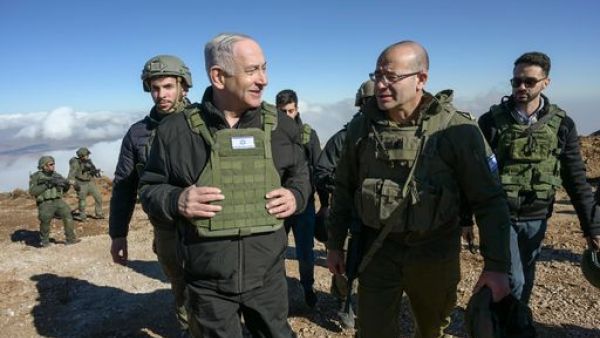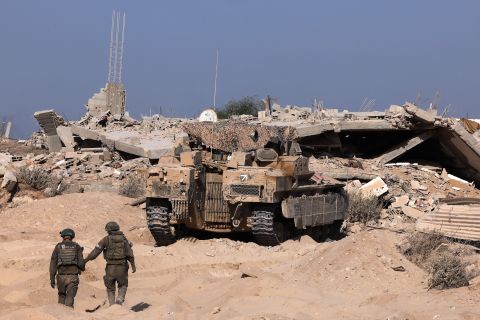ALBAWABA- Israeli Prime Minister Benjamin Netanyahu made an unannounced visit on Wednesday to the Israeli-controlled buffer zone in southern Syria, touring a fortified military outpost in the UN-disengagement area near Quneitra.
Wearing a tactical vest and accompanied by Defense Minister Israel Katz and IDF Chief of Staff Eyal Zamir, Netanyahu inspected radar facilities, drone launch sites, and reinforced bunkers built as part of Israel’s expanded security presence since the fall of the Assad regime.
Addressing soldiers, he declared: “We will hold this line as long as necessary to protect Israel,” after earlier skipping a court hearing in his ongoing corruption trial.
Syria’s interim government condemned the visit as “a flagrant violation of sovereignty,” with Foreign Minister Asaad al-Shaibani calling it “illegal aggression.”
The move follows an Israeli push into a Quneitra village earlier in the week and comes amid more than 1,000 airstrikes and hundreds of cross-border raids since Bashar al-Assad’s ouster in December 2024.
Israel’s expansion in southern Syria has accelerated over the past year. After Assad’s fall, Israel annexed the Mount Hermon enclave and established a 10–15 km-wide security belt across Daraa and Quneitra, displacing residents and dismantling remaining Syrian weapons sites.
Tensions flared in July 2025 when Israeli forces intervened to protect Druze communities from Bedouin militias, triggering ongoing strikes against regime remnants and HTS-linked factions. Tel Aviv now demands a demilitarized zone south of Damascus, stalling U.S.-brokered negotiations with Interim President Ahmad al-Sharaa.
Israel’s deepening footprint risks destabilizing southern Syria, potentially creating a vacuum for jihadist groups or proxy forces and complicating al-Sharaa’s fragile political transition. While a structured security pact might stabilize the border, it could also strain Arab unity and undermine U.S. mediation.
The timing also carries broader geopolitical signals. As Saudi Crown Prince Mohammed bin Salman visits Washington to advance defense agreements, AI partnerships, and renewed Abraham Accords talks, Netanyahu’s hardline posture underscores his refusal to normalize ties without concessions on the Palestinian issue.
The show of force in Syria allows Netanyahu to assert leverage amid President Trump’s regional reset, potentially complicating U.S.-Saudi momentum and plans for post-Gaza stabilization funding.










